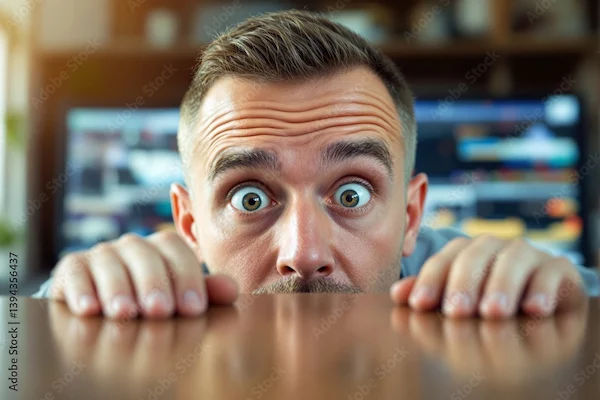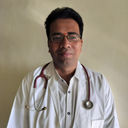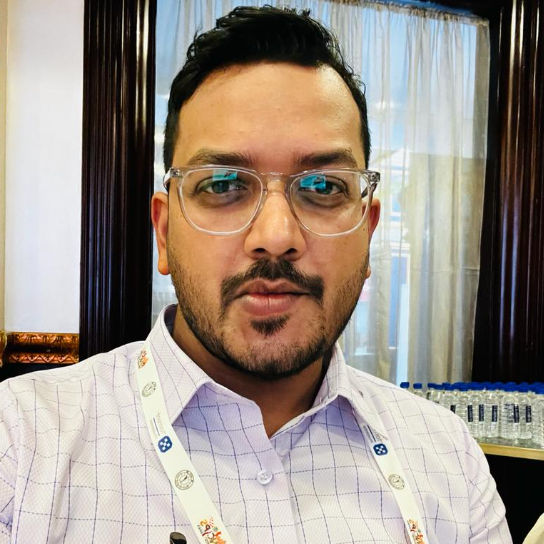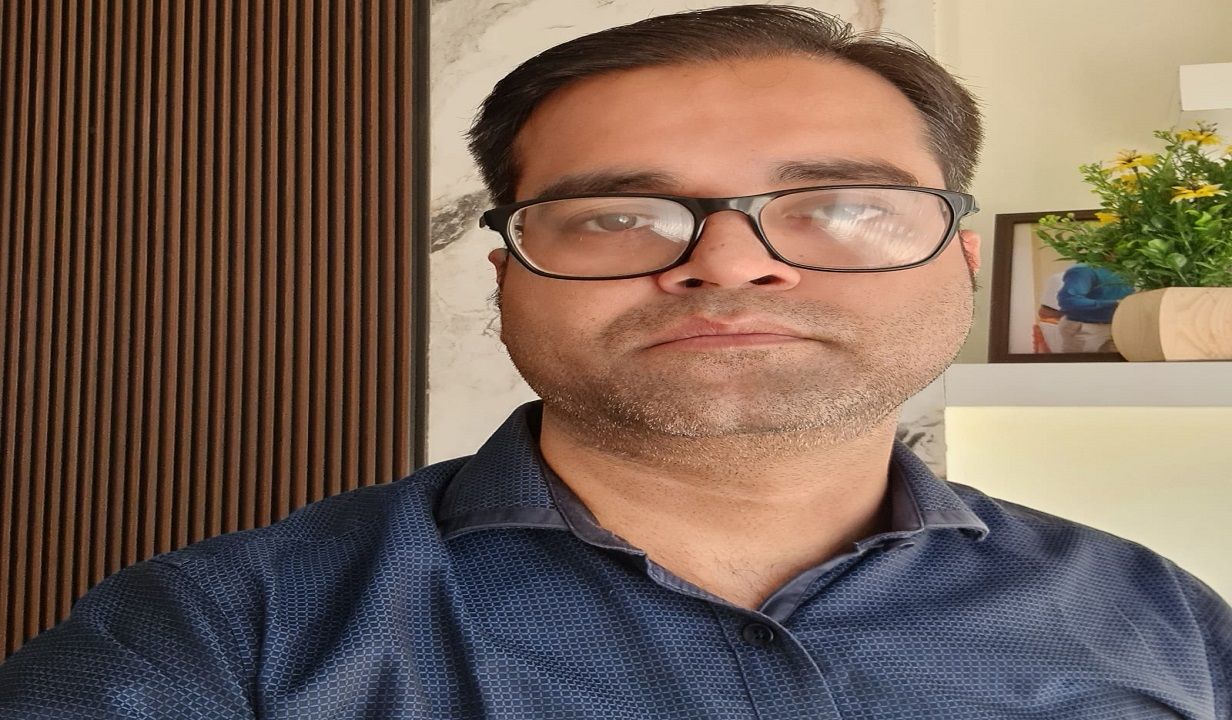How to Reduce Anxiety?
Learn about anxiety, its symptoms, and its causes. Explore more about the types of anxiety disorders and effective strategies to reduce anxiety through mindfulness, lifestyle changes and professional treatment options.

Written by Dr.Sonia Bhatt
Last updated on 3rd Jul, 2025

What is Anxiety?
Anxiety is a feeling of fear, unease, or dread that can be a normal response to stress. It can be mild or severe and can also impact how one thinks, feels or behaves. It might cause individuals to sweat, feel tensed or restless and have a rapid heartbeat. For example, one might feel anxious when faced with a difficult situation at work, before making an important decision or before taking a test. However, it can also help individuals cope by giving them a boost of energy and helping them focus better. But, for people with anxiety disorders, the fear isn’t temporary and can be overwhelming. Anxiety disorders are conditions where the anxiety doesn’t go away and can get worse over time. The symptoms can interfere with daily activities such as everyday work and relationships.
Types of Anxiety Disorders
There are several types of anxiety disorders, as mentioned below:
1. Generalised Anxiety Disorder (GAD)
GAD is when a person feels anxious on most days. The constant worrying involved in this type of anxiety can make it hard for a person to study, work, or socialise with family and friends.
2. Obsessive Compulsive Disorder (OCD)
OCD is when someone has ongoing unwanted or intrusive thoughts and fears, causing anxiety. This involves repetitive behaviours. For example, arranging or ordering things in a particular and precise way and repeating the same multiple times daily.
3. Panic Disorder
Panic attacks can be overwhelming, intense, and often uncontrollable feelings of anxiety. Physical symptoms can include chest pain, sweating, dizziness and trouble breathing.
4. Post-Traumatic Stress Disorder (PTSD)
Post-traumatic stress disorder can happen after individuals experience a distressing event like a disaster, war, assault, or accident. Symptoms may include upsetting dreams, difficulty relaxing, flashbacks of the event and avoidance of anything related to the event.
5. Phobias
A specific phobia is when someone feels very scared about a particular situation or object. Common specific phobias are heights, injections, spiders, and travelling on a plane.
6. Social Anxiety Disorder
Also known as social phobia, it occurs when people have an intense fear of being embarrassed, humiliated, or criticised. This fear can occur in daily life situations such as talking to people or eating in front of others.
Symptoms of Anxiety
Common anxiety symptoms can include the following:
Sweating
Breathing rapidly (hyperventilation)
Feeling nervous, tense or restless
Trembling
Feeling tired or weak
Feeling a sense of impending danger or panic
Having an increased heart rate
Having trouble sleeping
Having difficulty controlling worry
Experiencing gastrointestinal (GI) problems
Having the urge to avoid things that can trigger anxiety
Having difficulty concentrating or thinking beyond the present worry
Consult Top Doctor For Anxiety
Common Causes of Anxiety
Life experiences such as traumatic events can appear to trigger anxiety disorders in people already prone to anxiety. Inherited traits can also be a factor.
Below are a few common causes of anxiety:
Imbalances in brain chemicals, particularly dopamine and serotonin, can contribute to anxiety symptoms.
Genetic predisposition can play a vital role in developing anxiety disorders.
Poor lifestyle habits, including lack of exercise and sleep and unhealthy diet, can increase anxiety.
Stressful life situations or events such as financial difficulties, trauma, or relationship problems can trigger anxiety.
Excessive use of social media and exposure to negative news can increase anxiety levels.
Chronic medical conditions such as diabetes, heart disease, and thyroid disorders can also contribute to anxiety.
Who is at Risk for Anxiety Disorders?
The risk factors for different types of anxiety disorders can vary. For example, GAD and phobias are common in women, but social anxiety can affect men and women equally.
There are general risk factors for all types of anxiety disorders, including:
Traumatic events in early childhood or adulthood.
Some physical health conditions, such as thyroid problems or arrhythmia.
Certain personality traits include being shy or withdrawn in new situations or meeting new people.
Family history of anxiety or other mental disorders.
Diagnosis of Anxiety
Individuals can start by seeing their primary healthcare provider to determine if their anxiety is related to their physical health. The provider can check for signs of an underlying medical condition that may need treatment.
To help diagnose an anxiety disorder, the mental health provider may:
Provide a Psychological Evaluation: This involves discussing thoughts, feelings, and behaviour to help pinpoint a diagnosis and check for related complications. Anxiety disorders often can occur along with other mental health problems, such as depression or substance misuse, making the diagnosis more challenging.
Compare Symptoms to the Criteria in the DSM-5: Several doctors use the criteria in the Diagnostic and Statistical Manual of Mental Disorders (DSM-5), published by the American Psychiatric Association, to diagnose an anxiety disorder.
Treatment Options for Anxiety
There are two main treatments for anxiety disorders – psychotherapy and medications. Individuals may benefit the most from a combination of the two.
1. Psychotherapy
This is also known as talk therapy or psychological counselling, which involves working with a therapist to reduce anxiety symptoms. The most effective form of psychotherapy is Cognitive Behavioural Therapy (CBT) for anxiety disorders. CBT, generally a short-term treatment, focuses on teaching people specific skills to improve symptoms and gradually return to the activities one may have avoided due to anxiety. CBT includes exposure therapy, where individuals gradually encounter the object or situation that triggers anxiety and build confidence to manage the situation and anxiety symptoms.
2. Medications
Numerous medications are used to help relieve anxiety symptoms, depending on the type of anxiety disorder and whether a person also has other mental and physical health issues. For example, an antianxiety medication may be prescribed. Certain antidepressants are used in treating anxiety disorders. Doctors may even prescribe other types of medications in limited circumstances, such as sedatives. These medications give short-term relief of anxiety symptoms and are not intended to be used long-term.
Lifestyle and Home Remedies
Making a few lifestyle changes can play an important role in treating anxiety disorders. A few of them are listed below:
Avoid Alcohol and Recreational Drugs: These substances can cause or make anxiety worse. Hence, avoiding alcohol and recreational drugs is critical.
Make Sleep a Priority: Sound sleep is essential for feeling rested, which can help relieve anxiety symptoms.
Quit Smoking and Avoid Caffeinated Beverages: Both nicotine and caffeine can worsen anxiety.
Eat Healthy: A healthy diet, including vegetables, fruits, whole grains, and fish, may reduce anxiety. However, more research is needed.
Stay Physically Active: It is essential to develop a routine to stay physically active on most days of the week. Exercise is a powerful stress reducer. It may also improve mood and help individuals stay healthy. Individuals can start out with light exercises and then gradually increase the intensity of the workouts.
Stress Management and Relaxation Techniques: Meditation, yoga, and visualisation techniques are examples of relaxation techniques that can help ease anxiety.
Conclusion
Managing anxiety requires a multifaceted approach incorporating mindfulness practices, cognitive strategies, lifestyle adjustments, and professional support. Understanding anxiety and recognising its triggers is the first step toward effectively managing it. It can be manageable with patience, persistence, and the right treatment options. Prioritising mental health leads to a calmer and more fulfilling life.
Consult Top Psychiatrist
Consult Top Doctor For Anxiety

Dr. Vunnam Shashanka
Psychiatrist
9 Years • MBBS, MD (Psychiatry)
Visakhapatnam
Apollo 24|7 Clinic - Andhra Pradesh, Visakhapatnam
(125+ Patients)

Dr. Seema Jain
Psychiatrist
31 Years • MBBS, DPM, DNB ( Psychiatry)
Nashik
Apollo 24|7 Clinic - Maharashtra, Nashik
(50+ Patients)

Dr. Dinesh Reddy Panati
Psychiatrist
13 Years • MBBS, MD (Psychiatry)
Visakhapatnam
Apollo 24|7 Clinic - Andhra Pradesh, Visakhapatnam

Dr. Sanjoy Roy
Psychiatrist
7 Years • MBBS, DPM (CIP Ranchi)
Kolkata
The Hope and Care clinic, Kolkata

Dr. Pratik Kumar
Psychiatrist
10 Years • MBBS,DNB-PSYCHIATRY
North West Delhi
DELHI GLOBAL MIND CLINIC, North West Delhi
(75+ Patients)
Consult Top Psychiatrist

Dr. Vunnam Shashanka
Psychiatrist
9 Years • MBBS, MD (Psychiatry)
Visakhapatnam
Apollo 24|7 Clinic - Andhra Pradesh, Visakhapatnam
(125+ Patients)

Dr. Seema Jain
Psychiatrist
31 Years • MBBS, DPM, DNB ( Psychiatry)
Nashik
Apollo 24|7 Clinic - Maharashtra, Nashik
(50+ Patients)

Dr. Dinesh Reddy Panati
Psychiatrist
13 Years • MBBS, MD (Psychiatry)
Visakhapatnam
Apollo 24|7 Clinic - Andhra Pradesh, Visakhapatnam

Dr. Sanjoy Roy
Psychiatrist
7 Years • MBBS, DPM (CIP Ranchi)
Kolkata
The Hope and Care clinic, Kolkata

Dr. Pratik Kumar
Psychiatrist
10 Years • MBBS,DNB-PSYCHIATRY
North West Delhi
DELHI GLOBAL MIND CLINIC, North West Delhi
(75+ Patients)
